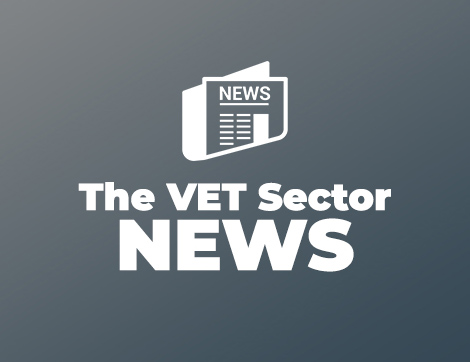 With over 25 years’ experience as a practicing CA, David is the Founder and Principal of RTO Accountants. David started his career at KPMG, moving onto mid tier accounting firms and commercial roles with Citigroup, Zurich, CBA and others in Sydney and London before setting up an accounting practice in 2001. Offering commercial and practical advice, David believes the foundation for business success is built upon strong, trusted and lasting client partnerships.
With over 25 years’ experience as a practicing CA, David is the Founder and Principal of RTO Accountants. David started his career at KPMG, moving onto mid tier accounting firms and commercial roles with Citigroup, Zurich, CBA and others in Sydney and London before setting up an accounting practice in 2001. Offering commercial and practical advice, David believes the foundation for business success is built upon strong, trusted and lasting client partnerships.
David is commercially minded and works collaboratively with clients to develop strategies and solutions for complex business challenges. Having worked in accounting firms as well as public and private businesses, David has a breadth of experience in accounting, taxation, business advisory, financial control/CFO roles, ensuring his clients receive top-level, expert advice.
Specialising in the VET/CRICOS/ELICOS sector since 2016, he has extensive experience working with RTO’s. Specific areas of experience include sales due diligence work, tax advice on sales and other, business group structuring, board reporting, financial viability risk assessment requirements (FVRAR) and business advice.
David loves his sport and played rugby for many years, he still follows the game at all levels from club to international closely. He now enjoys getting outdoors all year round to train and compete in kayak races.
Sukh Sandhu: How long have you been assisting RTOs with financial viability risk assessments, and what has your overall experience been like in this field?
David Jepsen: We have been working with RTO’s since 2014 and financial viabilities from 2018, which was just prior to the introduction of the version of the FVRA Tool we still work with now. The FVRA Requirements were very basic and the introduction of the new requirements in 2018, was like moving from 2 to 9 out of 10 in terms of financial reporting complexity. The sector was not accustomed to this level of financial reporting; I still see issues with that, though I think the sector is getting accustomed to this and the need for this.
The FVRAR and its Tool are complex; as qualified accountants it took us many hours and late nights to get our heads around it and learn its nuances, this is a process for us that never stops.
Sukh Sandhu: What are the five most common mistakes people make when completing the financial viability risk assessment packs, and how can they be avoided?
David Jepsen: I will start with saying we have an initial meeting with clients prior to them starting work on financials and we prepare the Tool for our clients to avoid these mistakes. The client owns and knows the RTO and its plan, though we address and guide our clients on our area of specialisation early to make the process effective and simple for the client.
1. Business Plan or other information available to ASQA contradicts the FVRA Tool.
Solution (S): Get your signing accountant to review the business plan and directors be mindful to understand if changes in the forecast affect other documents.
2. Over emphasis on the bank balance to prove viability.
Solution (S): Provide a financial guarantee and evidence of available liquid assets to fund the RTO; proving the RTO has access to funds. Funds can easily and quickly be deposited or withdrawn from an account.
3. Over optimistic forecasting; higher revenues and lower costs to make the RTO more profitable.
Solution (S): be realistic, even conservative and consider all costs and choose a mid range of student numbers and not the best scenario. Business start ups are rarely profitable and take time to grow and make a profit; accountants and auditors are aware of this.
4. Incorrect and incomplete Tools; the various sheets do not reconcile and/or are not completed correctly; leads to a Tool with a red light and automatic rejection.
Solution (S): We only see these issues when the tool is done by the director’s or another advisor and RTO Accountants are brought into review. Working with an accounting firm experienced with the Tool is the solution, alternatively spend a lot of time and hopefully get it correct.
There is a lot to consider including future, actual, historical financial and operational information that reconciles. Forecasting the balance sheet and cash flow in software and not excel. Accurate financial reporting of this complexity is difficult even for qualified accountants using specialised forecasting software.
5. Forecasting Accuracy
Solution (S): It is a forecast of the future, no matter what you do it will not be 100% correct; consider all the information currently available to you and find a comfortable balance in the level of detail, we can guide you.
Sukh Sandhu: We understand that you also assist organisations with the selling and purchase of RTOs; could you perhaps elaborate a little more for our subscribers?
David Jepsen: For sellers we can help to clarify or prove the value of your RTO via forecasting and a valuation of the RTO. We can provide a report on this that improves the sale process for you; attracting more buyers and a higher price as you are able to articulate the RTO value via this document and discussions. The report can be presented to brokers and potential buyers.
For buyers it is usually Due Diligence (DD) work on the RTO you are considering acquiring. The potential scope of Due Diligence work is very broad as its ultimate objective is to ensure the RTO financial position is as the seller’s state in their financials; the process is like a financial audit. We want to check that you are buying the RTO you think you are. The scope of work is discussed and decided with the client and can change through the process. Many buyers don’t undertake DD as it is a cost that may be large compared to the purchase price; the potential consequences and costs of not undertaking DD when you purchase a RTO can be much larger than the purchase value as the buyer inherits the past of the RTO including any compliance, legal and financial issues, and risks. Our DD findings have saved clients millions. There are many examples including:
- A $200k RTO purchase we discovered that the RTO had not paid tax or GST for years and the new owners would be responsible for the $150k; the buyers purchase cost is doubled once penalties are included
- In another DD the RTO was accounting for training revenue on a cash basis prior to training delivery and therefore it looked more profitable than it was. Once discovered the sale price was renegotiated from $1m to $750k; $250k savings.
DD work prior to the purchase is more effective than resolving via enforcement of the share sale contract post sale. Enforcement of the share agreement is difficult and includes directors time, court costs and an unknown outcome. Our due diligence work is focussed on the financials, and we work with other specialists on the DD. Engaging RTO specialist lawyers and consultants should be considered.
DD can also be done for sellers, though is less common. It is more likely to happen if the seller is relying on the new owner’s performance; for example, if the sale includes an ‘earn out’ whereby the sale proceeds will depend on the performance post change of ownership, you want to ensure the buyer will keep the RTO profitable.
Sukh Sandhu: What are the most significant financial risks that training organisations face in today’s environment?
David Jepsen: It depends on the RTO of course, though broadly speaking COVID still looms large for me as a risk to business and the economy for some time, I hope we have seen the worst of it. The last 18 months turned out better than many RTO’s envisaged as they cut costs, received Government support for their business and education became an economic priority and recovery plan that has led to funding of training. I know many colleges have not been so lucky, especially those exposed to international students.
General Government support of the economy, such as Jobkeeper, Jobsaver and disaster payments will be withdrawn and that may also pose risks to the economy and perhaps then student expenditure on courses.
From history we know that funding of training can be withdrawn quickly and that is a risk that directors should remain aware of and have plans in place for.
The regulator has been subdued in its compliance actions since January 2020 and I think that may change as they start to conduct monitoring reviews on inactive or suspected non-compliant RTO’s.
Management and understanding of the RTO operations and financial position, to ensure that you are making a profit and are cash flow positive in the medium to long term. There can be a race to the bottom in reducing student fees against competitors and you need to ensure the fees you are charging will cover your operations and provide the owners with a return on their investment.
Sukh Sandhu: When it comes to working with the national regulatory authority, how has your experience been?
David Jepsen: I have had meetings with the regulator on the FVRAR; that took a little time to organise though they were productive meetings.
Administrative Appeals Tribunal (AAT) attendance to defend a client’s financial viability against the regulators legal team and forensic accountants. The outcome for the client was favourable, though being questioned by a legal team is never too much fun, though it was challenging and satisfying to explain the financials in that environment.
Recently the regulator seems more communicative and proactive regarding its role and how they will undertake that role, hopefully we will see this in its actions going forward.
Sukh Sandhu: Are there any suggestions you would like to offer to people who are interested in getting into the RTO industry?
David Jepsen: It is a regulated sector as education is a matter of public interest and therefore there will be scrutiny on your affairs and how you intend to operate your business and maintain financial viability. This level of scrutiny will mean setup takes more time and costs more. Most sectors do not have this scrutiny; though writing a business plan and a financial forecast would help all start-up businesses and deter those not ready for the responsibilities of running a business.
Buyers of an RTO business need to get to know the sector and do your due diligence. Training is a happy and positive sector, the conferences are enjoyable, the people involved care about their students/clients.
As the accountant I have to say businesses have a responsibility to society, their clients, staff, suppliers, and other counterparts. For all the efforts and stress please ensure you make a decent return out of it. Understand your financials, risks and what you are making from the business, get regular reporting not just once a year.
For those who wish to connect with or follow David Jepsen, you can do so via his Linkedin, here – www.linkedin.com/in/david-jepsen




 With over 25 years’ experience as a practicing CA, David is the Founder and Principal of RTO Accountants. David started his career at KPMG, moving onto mid tier accounting firms and commercial roles with Citigroup, Zurich, CBA and others in Sydney and London before setting up an accounting practice in 2001. Offering commercial and practical advice, David believes the foundation for business success is built upon strong, trusted and lasting client partnerships.
With over 25 years’ experience as a practicing CA, David is the Founder and Principal of RTO Accountants. David started his career at KPMG, moving onto mid tier accounting firms and commercial roles with Citigroup, Zurich, CBA and others in Sydney and London before setting up an accounting practice in 2001. Offering commercial and practical advice, David believes the foundation for business success is built upon strong, trusted and lasting client partnerships.
 Peter owns and operates Sydney based education law firm Denison Toyer.
Peter owns and operates Sydney based education law firm Denison Toyer.






